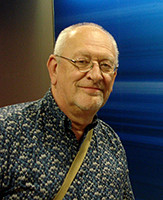European Fertility - Beyond the new myths
The Lundis de l’Ined weekly seminar is pleased to invite Ron Lesthaeghe, emeritus professor of the Royal Flemish Academy of Belgium for Science and the Arts, who will make a public presentation on “European Fertility – Beyond the new Myths.”
Discussant: Laurent Toulemon, INED research unit on fertility, family and sexuality
You are welcome from 10:30 AM

After at least two decades of sub-replacement fertility in virtually all European countries, some theories expect a reversal of the decline whereas others see a “low fertility trap”. In this article we take a longitudinal, life-cycle view of fertility rather than operate with the classic period TFR, and document how two clusters of countries and regions of respectively higher versus lower fertility have come into existence. We refute the statistical basis of fertility rising with improving human development (HDI) or any other such general composite index, including these pretending to capture gender inequality. Instead we show that the bottlenecks are much more specific and are due to particular mixes of factors in the various countries. We predict the continuation of structural below replacement fertility for the second decade of the 21st Century in Europe, but at very different levels. Also, German-speaking countries could escape from the low fertility trap if they adjust their child-care and school organization, but for southern European and formerly Communist countries (FCCs), that escape will be more difficult given the existence of multiple disadvantages.
Ron Lesthaeghe
Professor Lesthaeghe’s research has been in the various subfields of demography : historical, social and economic, and mainly covering populations of Europe and of sub-Saharan Africa. He has also done research in the fields of cultural change in Europe and of ethnic minorities studies. He is currently examining the Second Demographic Transition, which stresses the importance of ideational changes affecting demographic behavior related to the formation/dissolution of unions and marital/non-marital fertility behavior.
